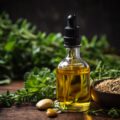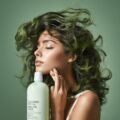Understanding Alcohol’s Impact on Scalp Health
When we think about the effects of alcohol on our health, we often focus on internal organs like the liver or brain. However, alcohol consumption can also impact an unexpected area – our scalp. This article will explore the relationship between alcohol and scalp health, offering compassionate insights and practical advice for those concerned about this issue.
The Science Behind Alcohol and Your Scalp
Alcohol affects our bodies in numerous ways, including our skin and hair. When it comes to the scalp, alcohol can lead to:
- Dehydration of the scalp skin
- Disruption of natural oil production
- Inflammation and irritation
- Potential nutrient deficiencies affecting hair growth
It’s important to understand these effects not to induce guilt, but to empower ourselves with knowledge that can lead to healthier choices.
Signs of Alcohol-Related Scalp Issues
If you’re concerned about how alcohol might be affecting your scalp, look out for these signs:
- Dryness and flakiness
- Increased itchiness
- Redness or sensitivity
- Changes in hair texture or growth patterns
Remember, experiencing these symptoms doesn’t necessarily mean alcohol is the cause, but it could be a contributing factor worth considering.
Nurturing Your Scalp: Strategies for Health and Healing
If you’re looking to improve your scalp health, consider these compassionate approaches:
- Hydration is key: Drink plenty of water, especially if you choose to consume alcohol. This helps counteract the dehydrating effects.
- Balanced nutrition: Ensure your diet is rich in vitamins and minerals that support skin and hair health, such as biotin, vitamin E, and omega-3 fatty acids.
- Gentle scalp care: Use mild, alcohol-free hair products and consider incorporating a scalp massage into your routine to stimulate blood flow.
- Mindful consumption: If you choose to drink, do so in moderation. Be aware of how your body responds and adjust accordingly.
- Stress management: High stress levels can exacerbate scalp issues. Explore relaxation techniques like meditation or yoga.
The Holistic Approach: Scalp Health as Part of Overall Wellbeing
It’s crucial to view scalp health not in isolation, but as part of your overall wellbeing. The health of our scalp can be a reflection of our internal health and lifestyle choices. By taking a holistic approach to our health – considering our diet, stress levels, sleep quality, and yes, alcohol consumption – we can support not just our scalp, but our entire body.
This perspective allows us to make choices from a place of self-care rather than restriction. It’s not about denying ourselves, but about nourishing our bodies and minds in ways that make us feel truly good.
Seeking Support and Professional Advice
If you’re concerned about your scalp health or struggling with alcohol use, remember that seeking help is a sign of strength, not weakness. Consider reaching out to:
- A dermatologist for persistent scalp issues
- A trichologist specializing in scalp and hair health
- A healthcare provider for concerns about alcohol consumption
- Support groups or counselors for emotional support
Remember, you’re not alone in this journey. There are professionals and communities ready to support you in your path to better health and wellbeing.
FAQ: Understanding Alcohol’s Effects on Scalp Health
Q1: Can alcohol directly cause hair loss?
A1: While alcohol itself doesn’t directly cause hair loss, excessive consumption can lead to nutritional deficiencies and hormonal imbalances that may contribute to hair thinning or loss over time.
Q2: How long does it take for the scalp to recover after reducing alcohol intake?
A2: The recovery time varies for each individual, but many people notice improvements in scalp health within a few weeks to a couple of months after reducing alcohol consumption and improving overall health habits.
Q3: Are some types of alcohol less harmful to scalp health than others?
A3: All types of alcohol can potentially affect scalp health due to their dehydrating effects. However, the impact is more related to the amount consumed rather than the type of alcohol.
Q4: Can topical alcohol in hair products affect scalp health?
A4: Yes, alcohol in hair products can potentially dry out the scalp. It’s advisable to choose alcohol-free or low-alcohol products, especially if you have a sensitive scalp.
Q5: Is it possible to enjoy alcohol occasionally without harming scalp health?
A5: Yes, moderate alcohol consumption is unlikely to significantly impact scalp health for most people. The key is balance, staying hydrated, maintaining good nutrition, and listening to your body’s needs.
In conclusion, understanding the relationship between alcohol and scalp health empowers us to make informed decisions about our wellbeing. Remember, the goal isn’t perfection, but progress towards a healthier, happier you. Be kind to yourself as you navigate these choices, and don’t hesitate to seek support when needed. Your scalp – and your overall health – will thank you for your mindful approach.









